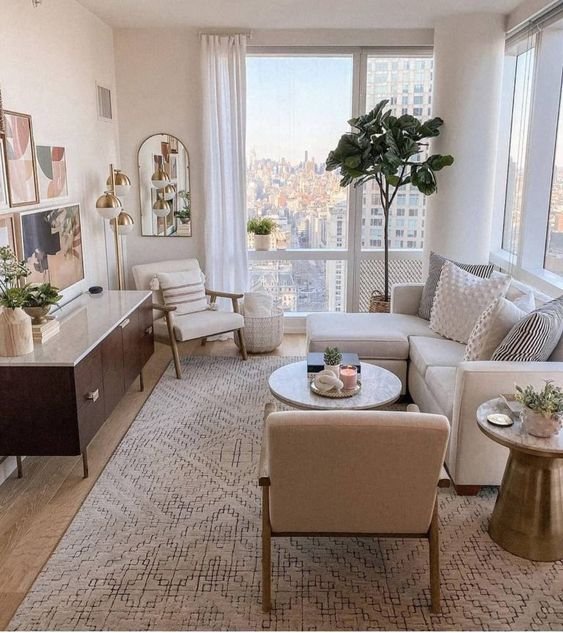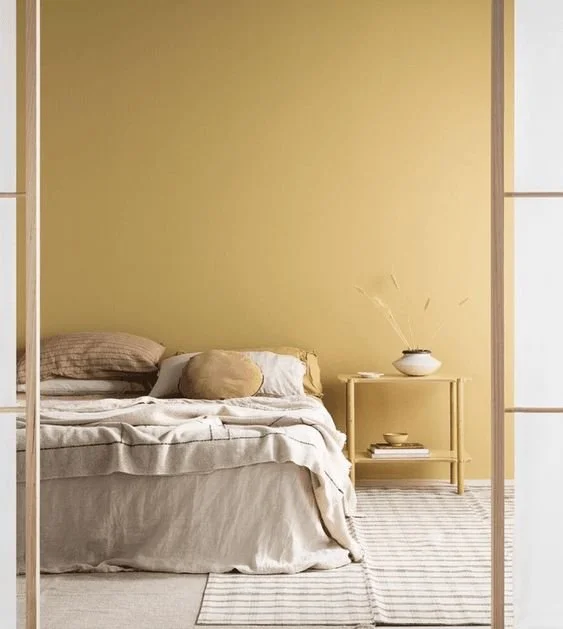What is Feng Shui?
Feng Shui is an ancient Chinese practice that draws on various energies to create harmony between an individual and their environment. It is rooted in nature, with Feng translating to wind, and Shui translating to water. The idea of Feng Shui is to create flowing living spaces that invite good energy (or Qi) to improve one’s wealth, happiness, and family. Here are some of the principles of Feng Shui.
Photo via capitalfm.co.ke
A key element in Feng Shui is what’s known as the commanding position. In any room, this position is diagonal to the entrance door, on the opposite side of the room. This position gives you a clear vantage point of the entrance but you’re not directly in line with it. According to Feng Shui principles, it’s where we should spend the most time in any room so it’s a good place to position your sofa or bed.
Photo via dvdinteriordesign.com
Symmetry is important in Feng Shui, creating a harmonious balance of energy and power in the room. This is especially important in homes shared by a couple, as symmetry displays the intention to create equal space for each person in the relationship and in the home.
Photo via furniturechoice.co.uk
Feng Shui encourages a less-is-more approach to decor, for an uncluttered and free-flowing look. Harmony with nature is also extremely important, so blinds and curtains are left open as long as there is daylight, and a few select plants are brought indoors to encourage good energy. For example, a jade plant is associated with friendship and prosperity.
Photo via The Spruce / Nusha Ashjaee
Feng Shui is based on enhancing eight key areas of the individual’s life, known collectively as the Bagua. As illustrated above, the Bagua are wealth, fame, partnership, family, children, knowledge, career, and helpful people. Tai Chi, at the center, is the overall health and wellbeing of the individual.
Feng Shui is based on inviting these Bagua into the individual’s life through the design and energy of their home. Each Bagua corresponds to one of the elements: earth, metal, water, wood, and fire.
For example:
Family is connected to wood, and is associated with green, blue, and teal colors.
Wealth is connected to wood, and is associated with purple tones.
Health is connected to earth, and is associated with earthy tones like yellow, orange, and brown.
Photo via divabydesigninteriors.com
According to Feng Shui, you can design your home to invite certain areas of the Bagua into your life. The entryway is very important, and this space generally focused on inviting knowledge, career, and helpful people in.
Photo via mydomaine.com
According to the principles of Feng Shui, you should choose the areas of the Bagua that you want to improve in your life and incorporate their corresponding elements in each room. For example, in your bedroom you may want to invite health and overall wellness, so you would use earthy tones like brown, yellow, and orange in your decor.
Feng Shui is a complex tradition that has many elements to study, but these basic principles are the guiding factors in creating a home with positive energy that invites health, relationships, and prosperity.






